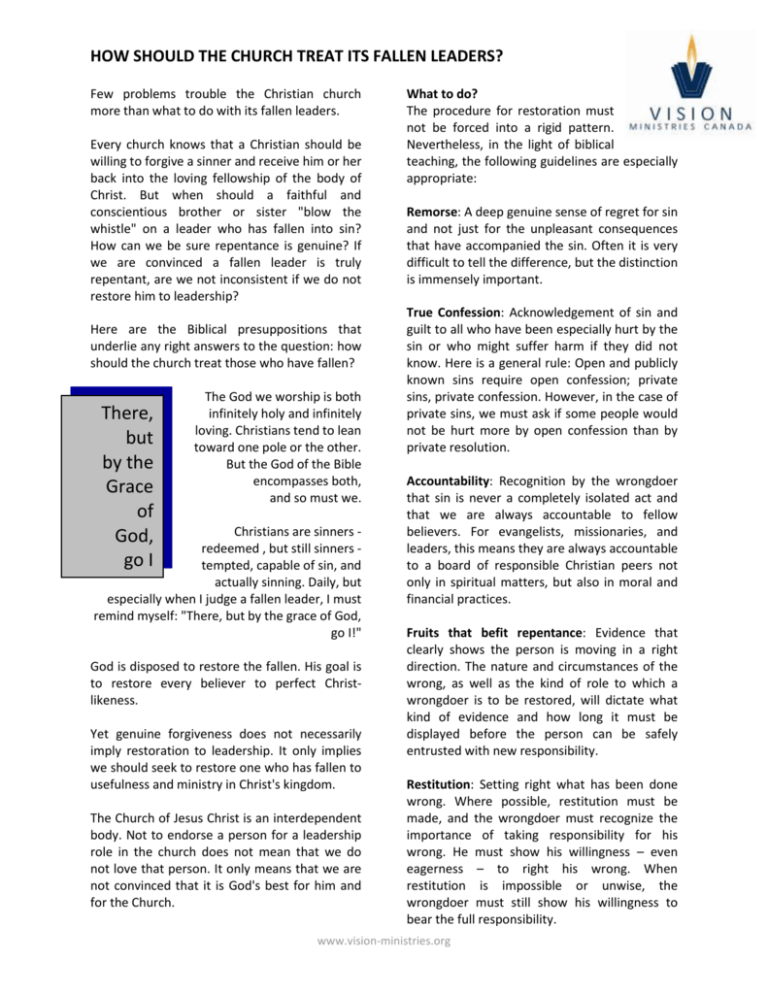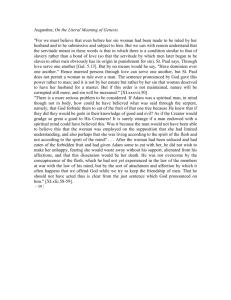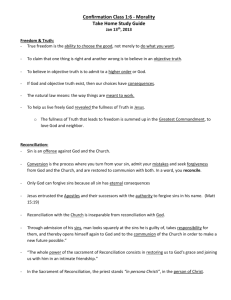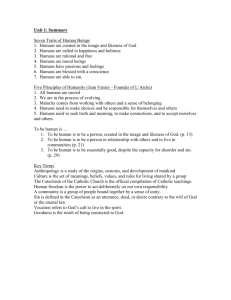How should the Church Treat its Fallen Leaders?
advertisement

HOW SHOULD THE CHURCH TREAT ITS FALLEN LEADERS? Few problems trouble the Christian church more than what to do with its fallen leaders. Every church knows that a Christian should be willing to forgive a sinner and receive him or her back into the loving fellowship of the body of Christ. But when should a faithful and conscientious brother or sister "blow the whistle" on a leader who has fallen into sin? How can we be sure repentance is genuine? If we are convinced a fallen leader is truly repentant, are we not inconsistent if we do not restore him to leadership? Here are the Biblical presuppositions that underlie any right answers to the question: how should the church treat those who have fallen? There, but by the Grace of God, go I The God we worship is both infinitely holy and infinitely loving. Christians tend to lean toward one pole or the other. But the God of the Bible encompasses both, and so must we. Christians are sinners redeemed , but still sinners tempted, capable of sin, and actually sinning. Daily, but especially when I judge a fallen leader, I must remind myself: "There, but by the grace of God, go I!" God is disposed to restore the fallen. His goal is to restore every believer to perfect Christlikeness. Yet genuine forgiveness does not necessarily imply restoration to leadership. It only implies we should seek to restore one who has fallen to usefulness and ministry in Christ's kingdom. The Church of Jesus Christ is an interdependent body. Not to endorse a person for a leadership role in the church does not mean that we do not love that person. It only means that we are not convinced that it is God's best for him and for the Church. What to do? The procedure for restoration must not be forced into a rigid pattern. Nevertheless, in the light of biblical teaching, the following guidelines are especially appropriate: Remorse: A deep genuine sense of regret for sin and not just for the unpleasant consequences that have accompanied the sin. Often it is very difficult to tell the difference, but the distinction is immensely important. True Confession: Acknowledgement of sin and guilt to all who have been especially hurt by the sin or who might suffer harm if they did not know. Here is a general rule: Open and publicly known sins require open confession; private sins, private confession. However, in the case of private sins, we must ask if some people would not be hurt more by open confession than by private resolution. Accountability: Recognition by the wrongdoer that sin is never a completely isolated act and that we are always accountable to fellow believers. For evangelists, missionaries, and leaders, this means they are always accountable to a board of responsible Christian peers not only in spiritual matters, but also in moral and financial practices. Fruits that befit repentance: Evidence that clearly shows the person is moving in a right direction. The nature and circumstances of the wrong, as well as the kind of role to which a wrongdoer is to be restored, will dictate what kind of evidence and how long it must be displayed before the person can be safely entrusted with new responsibility. Restitution: Setting right what has been done wrong. Where possible, restitution must be made, and the wrongdoer must recognize the importance of taking responsibility for his wrong. He must show his willingness – even eagerness – to right his wrong. When restitution is impossible or unwise, the wrongdoer must still show his willingness to bear the full responsibility. www.vision-ministries.org Retreat: Withdrawing for a time from public responsibility and visibility. This is wise in the case of flagrant wrongdoing, both to give the leader a time for healing and to protect others. The apostle Peter waited for two months after his fall before he began to exercise leadership in the church. And following his conversion, the apostle Paul spent three years in Arabia before he took up his mission to the Gentiles. Leadership in the church, like forgiveness, cannot be bestowed on oneself. If anyone insists too readily that he or she ‘ought to be forgiven or ‘ought’ to be restored immediately to leadership, that is a clear sign that godly sorrow for sin is lacking. A Genuine Call: God is free to lay his servant “on the shelf” permanently or to call him back. But the call must be accompanied by a clear message to those who are to accept leadership. These guidelines, drawn generally from Holy Scripture, are not a rigid and invariable formula. Our task as a church is to recognize the loving plan of God for every believer, to forgive, and to seek to restore. Kenneth Kantzer This article by Kenneth Kantzer appeared in its entirety in CHRISTIANITY TODAY November 20/87. The complete article answers some questions not addressed in this condensed version. To receive a complete copy, please call the Vision Ministries Canada office. www.vision-ministries.org









